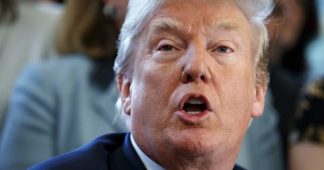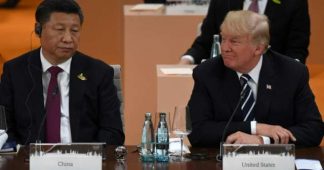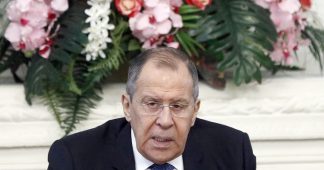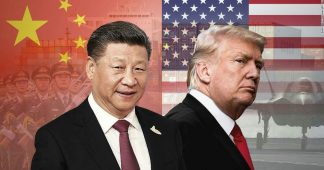A sketch of ideas for a global future
PART 1
“That Asia has ‘risen’ in the world economy since at least 1960, and especially since 2000, is a proposition that is widely accepted” (Immanuel Wallerstein, The Rise of Asia in the World Economy, GIS Réseau Asie – French Network for Asian Studies, September 2012). For Kishore Mahbubani “The rise of the West transformed the world. The rise of Asia will bring about an equally significant transformation. […] The rise of Asia will be good for the world” (Kishore Mahbubani, The Asian Hemisphere: The Irresistible Shift of Global Power to the East, USA, Public Affairs, 2008). However, Rehman Sobhan warned, “This transformation in the world economic order will not be painless either for the East or for the West. Indeed, the transition has the potential for causing much grief to the world as no established order is likely to cede its hegemony without challenge. […] The significant point of departure during this phase of transition lies in the fact that the receding economic power of the West (also more broadly classified as the North), dominated by the United States (US), remains and is likely to remain in the immediate future the dominant military power. […] This erosion of the economic power of the West while retaining military dominance with the US and its North Atlantic Treaty Organization (NATO) allies, does not bode well for an easy transition for the global order. […] How far the hitherto dominant West will go to preserve their hegemony over their economic order remains critical in determining whether the Asian century will evolve peacefully or through a process of turmoil” (Rehman Sobhan, ”The Political Economy of the Asian Century” in Manoranjan Mohanty, Vinod C. Khana, Biswajit Dhar (eds.) with a foreword by Boutros-Boutros Ghali, Building a Just World. Essays in Honour of Muchkund Dubey, India, New Delhi, Orient Black Swan, 2015).
We have been witnessing the symptoms of those statements through the offensive and defensive measures of the West, especially USA and their allies NATO members, in the forms of reproaches, denunciations, condemnations, criticisms, blames, black campaigns, threats, sanctions, blackmails, trials, embargo… towards rising countries not-allied to them, especially China. These symptoms raise questions: What else? Till when? What’s next?
The top ten largest economic entities in the world
Most, if not all, of the forecasts of global economic order until 2060, whatever the sources, private consultants (such as PwC) or interstate institutions (such as OECD and IMF), tell a similar story, such as: “six of the seven largest economies in the world are projected to be emerging economies in 2050 led by China (1st), India (2nd) and Indonesia (4th). The US could be down to third place in the global GDP rankings while the EU27’s share of world GDP could fall below 10% by 2050. UK could be down to 10th place by 2050, France out of the top 10 and Italy out of the top 20 as they are overtaken by faster growing emerging economies like Mexico, Turkey and Vietnam respectively…” (https://www.pwc.com/gx/en/issues/economy/the-world-in-2050.html checked 25/04/2020)
The global order of the top 10 economic size till 2050 according to PwC is following:
2030: China, USA, India, Japan, Indonesia, Russia, Germany, Brazil, Mexico, UK
2050: China, India, USA, Indonesia, Brazil, Russia, Mexico, Japan, Germany, UK
The IMF gives the following version:
2024: China, USA, India, Japan, Indonesia, Russia, Germany, Brazil, UK, France
(https://knoema.fr/tbocwag/gdp-forecast-by-country-statistics-from-imf-2020-2024 checked 25/04/2020)
The Economist offers the following forecast:
2050: China, USA, India, Indonesia, Japan, Germany, Brazil, Mexico, UK, France
(The Economist, Long-term macroeconomic forecasts Key trends to 2050, A special report from The Economist Intelligence Unit, https://espas.secure.europarl.europa.eu/orbis/sites/default/files/generated/document/en/Long-termMacroeconomicForecasts_KeyTrends.pdf checked 25/04/2020)
The World Economic Forum tells the following story:
2050: China, India, USA, Indonesia, Brazil, Russia, Mexico, Japan, Germany, UK
(World Economic Forum, These will be the most powerful economies in the world by 2050, 2017, https://www.weforum.org/agenda/2017/12/these-will-be-the-most-powerful-economies-in-the-world-by-2050 checked 25/04/2020)
While the OECD proposes the following order:
2060: China, India, USA, Indonesia, Japan, Turkey, Germany, Brazil, UK, Mexico
(OECD Data, GDP Long-term Forecast, 2018, OECD (2018), GDP long-term forecast (indicator), https://data.oecd.org/gdp/gdp-long-term-forecast.htm checked 25/04/2020)
Unpredictable pandemics do not seem to change fundamentally those forecasts. In the contrary, in the case of Covid-19, the pandemic seems to strengthen Asian economy vis-à-vis the West. According to Kishore Mahbubani, “The West’s incompetent response to the pandemic will hasten the power-shift to the East” (The Economist, April 20, 2020). He wrote even that “The pandemic could thus mark the start of the Asian century.” He put forward that “The crisis highlights the contrast between the competent responses of East Asian governments (notably China, South Korea and Singapore) and the incompetent responses of Western governments (such as Italy, Spain, France, Britain and America). The far lower death rates suffered by East Asian countries is a lesson to all. They reflect not just medical capabilities, but also the quality of governance and the cultural confidence of their societies.”
Those projected data and remarks raise questions: how will take place the process of growing together among the top ten largest economic entities in the world during the coming twenty, thirty or forty years? Will it be peaceful and calm, or in the contrary tense and full of turmoil? What is their respective wish for the global future? Do they share the same dream? Do they have the same aspiration, idea, project, or conception of the future global governance?
I want to play a role of Buddha’s mother who wished his son to be a great king so that what really happened was the contrary: he became a Buddha, a sage, an ascetic, who renounced the power, the property and the attachment to anything, and chose sufficiency. I wish the process to be tense and full of turmoil so that what will really happen be a sustainable world full of peace, justice and prosperity.
PART 2 follows.
Darwis Khudori, Indonesian Architect and Historian, Director of Master’s Degree in Exchanges with Asia, University Le Havre Normandy, France











